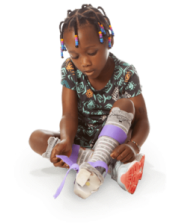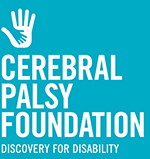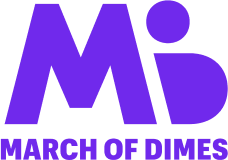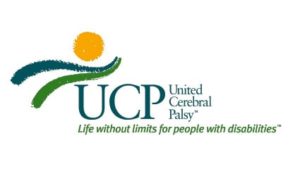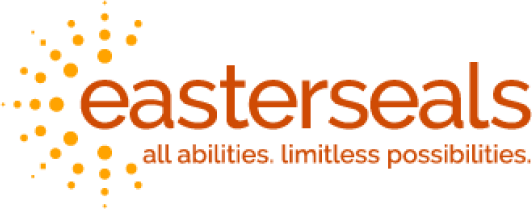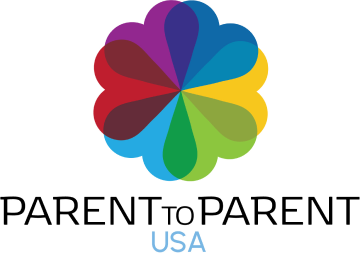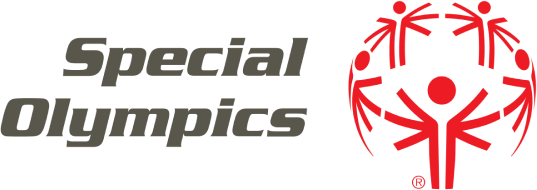What are cerebral palsy support groups?
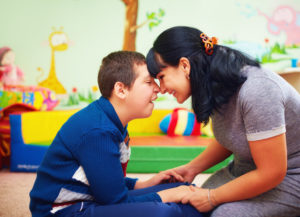
Cerebral palsy support groups offer emotional and practical assistance to individuals and families affected by cerebral palsy. They provide a platform for sharing experiences, advice, and resources.
Cerebral palsy support groups:
- Help caregivers find reassurance and understanding
- Let families know that their struggles are normal
- Offer hope and an optimistic perspective
- Provide a safe space to share obstacles and achievements
- Relieve stress, frustration, and caregiver burnout
Support communities are an excellent place for new parents to get tips and advice from those who have already raised children with cerebral palsy. Parents and caregivers can better prepare for their family’s future by talking with people who have been in their shoes.
Whether you attend a local meet-up or join an online group, cerebral palsy support groups provide an important sense of comfort and community.
Download our FREE Cerebral Palsy Guide to access more information for parents and caregivers of children with cerebral palsy.
Top 5 benefits of cerebral palsy support groups
Cerebral palsy support groups offer invaluable benefits for families navigating the challenges of this condition.
Here are 5 benefits of cerebral palsy support groups:
- Find experts: Get recommendations for top cerebral palsy specialists and health care providers.
- Practical advice: Exchange tips on daily care, helpful resources, and advocating for your child's needs.
- Latest information: Stay informed about new treatments, including the latest cerebral palsy clinical trials and innovative therapies that could benefit your child.
- Reduced isolation: Connect with families who truly understand the CP journey, fostering a sense of belonging and mutual support.
- Emotional encouragement: Gain hope and resilience through the collective wisdom and encouragement of the cerebral palsy community.
Cerebral palsy support groups can help parents and caregivers feel less alone as they care for a child with CP.
Types of cerebral palsy support groups
The types of cerebral palsy support groups vary widely. Choosing the support group format that’s best for your family may take some trial and error. The most important thing is to ensure it aligns with your family's unique needs and circumstances.
Families can access cerebral palsy support through:
- National cerebral palsy organizations
- Local community groups
- Online cerebral palsy support groups
In addition to finding support, it's also essential to be informed about your legal rights and the resources available to you. If you're navigating the challenges of cerebral palsy, working with a skilled cerebral palsy lawyer can offer valuable insights into your options for support and compensation.
Cerebral Palsy Guide partners with top cerebral palsy lawyers across the country. Get a free legal case review right now to see if we can connect you.
National cerebral palsy organizations
National cerebral palsy organizations offer extensive resources, connecting individuals and families across the country with a vast community.
These networks can serve as gateways to accessing the latest research, treatments, and opportunities to engage with specialists. They also provide a pathway into clinical trials and a global perspective on cerebral palsy support.
Here are some of the most reputable national cerebral palsy organizations.
-
Cerebral Palsy Foundation
 The Cerebral Palsy Foundation (CPF) was founded in the 1950s. This organization contributes millions of dollars each year to cerebral palsy research. This includes studies and clinical trials focusing on new treatments that increase mobility and improve the overall quality of life for cerebral palsy patients.
The Cerebral Palsy Foundation (CPF) was founded in the 1950s. This organization contributes millions of dollars each year to cerebral palsy research. This includes studies and clinical trials focusing on new treatments that increase mobility and improve the overall quality of life for cerebral palsy patients.In addition to funding research, CPF campaigns to increase federal support for those living with CP. It’s also a leader in advocating for better educational programs for doctors, nurses, and therapists.
-
Cerebral Palsy Research Network
The Cerebral Palsy Research Network (CPRN) is a collaboration between hospitals and community members. Its goal is to improve health outcomes for people with cerebral palsy through high-quality research, education, and community programming.
Along with resources on parent/caregiver well-being and mental health, CPRN also has a dedicated online forum where users can share lived experiences and learn about evidence-based treatment options and research priorities.
-
March of Dimes
The mission of March of Dimes is to improve health and wellness for new mothers and babies. Its expansive support community provides a place to share stories through online discussion forums. It also has an extensive network of parents with experience raising children with special needs.
If you feel overwhelmed in your search for community support, this organization is a great place to start. March of Dimes can connect you with other parents located in the same part of the country so you can find a local support network.
Local cerebral palsy organizations
Cerebral palsy organizations on the local level help people access the resources they need close to home. These groups typically offer face-to-face meetings and activities, allowing members to share experiences and resources in a personal setting. They foster close relationships and direct community involvement.
The organizations listed below offer affiliate programs in many major cities. To find an affiliate group near you, visit their websites and provide your location. You will then receive a list of nearby affiliate groups that offer services, including cerebral palsy support groups, for both children and adults.
-
United Cerebral Palsy (UCP)
 UCP educates, advocates, and provides support resources for individuals with disabilities. UCP aims to provide individuals with disabilities with the tools to be independent and lead happy, healthy lives.
UCP educates, advocates, and provides support resources for individuals with disabilities. UCP aims to provide individuals with disabilities with the tools to be independent and lead happy, healthy lives.UCP also pushes for social, legal, and technological changes to make it easier for individuals with disabilities to achieve their dreams.
-
Easterseals
Easterseals is a nonprofit organization that provides services for more than 1 million children and adults with autism and other disabilities like cerebral palsy.
The group provides support services for medical rehabilitation, housing assistance, job training, child care, adult day programs, and recreation. It also offers resources that help individuals with disabilities achieve their goals.
-
The Arc
The Arc was founded in the 1950s by parents of children with developmental disabilities. Their experiences raising children with special needs laid the groundwork for their mission and efforts as an organization.
The Arc supports families and children with cerebral palsy by offering more than 730 state and local chapters across the country.
-
Parent to Parent USA
This nonprofit organization, founded in 2003, ensures that families and children with special needs have access to support through an extensive community network.
After contacting their local Parent to Parent organization, new families are matched with a set of Support Parents, usually within 24-48 hours. These Support Parents already have experience caring for a child with a similar disability and can provide other families with emotional support and guidance in their time of need.
-
Family Voices
 Family Voices is a community support organization that promotes quality health care for children and teens with disabilities. This includes offering cerebral palsy support groups for young adults. Its members work closely with government leaders and medical professionals at the national and local levels to ensure individuals with disabilities have their voices heard.
Family Voices is a community support organization that promotes quality health care for children and teens with disabilities. This includes offering cerebral palsy support groups for young adults. Its members work closely with government leaders and medical professionals at the national and local levels to ensure individuals with disabilities have their voices heard.
Online support groups for cerebral palsy
Many families may find it challenging to make time in their hectic schedules to attend cerebral palsy support groups and events. Thankfully, there are a variety of online cerebral palsy organizations to help busy parents access the resources and support they need.
Here is how in-person and online cerebral palsy support groups compare:
| Online cerebral palsy support groups | In-person cerebral palsy support groups | |
|---|---|---|
| Convenience | High (access from anywhere at any time) | Lower (requires physical presence) |
| Reach | Broad (global access to diverse perspectives) | Local (limited to a geographical area) |
| Flexibility | High (can participate around own schedule) | Lower (scheduled meetings) |
| Connection | Varied (depends on platform and participation) | Strong (face-to-face interactions) |
| Support | Immediate (through chat or forums) | Direct and personal (physical presence) |
| Ideal for | Those in remote areas or seeking full flexibility | Those looking for close, direct connections |
Considering these differences can help you decide which type of support group best suits your family’s needs and lifestyle. Below are several online cerebral palsy support groups.
-
Inspire.com
 This dedicated cerebral palsy support group forum has over 7,000 members as of 2024 and is partnered with UCP. The site connects patients, families, friends, and caregivers for support and inspiration. Discussions range from treatment options and independent living to advice for raising a child with CP.
This dedicated cerebral palsy support group forum has over 7,000 members as of 2024 and is partnered with UCP. The site connects patients, families, friends, and caregivers for support and inspiration. Discussions range from treatment options and independent living to advice for raising a child with CP. -
MyCP forum
This community web portal, founded by CPRN, offers a place for discussion among community members, clinicians, and advocates about CP research. All identities are protected, and forum discussions can’t be accessed by nonmembers or search engines.
Information shared in the portal helps generate new knowledge for future research and better services for people with CP. Families can also opt to complete confidential surveys about their experience with CP, which allows CPRN to find members of the community who want to participate in clinical trials or other studies.
-
Social media groups
Various cerebral palsy parent support groups are available on social media. Facebook has plenty of private groups that bring families together to connect, give advice, and share stories about life with cerebral palsy.
If you're looking for more personalized advice or have specific questions about managing cerebral palsy, Cerebral Palsy Guide has registered nurses on staff ready to help. Talking to a nurse can provide tailored guidance and support.
Reach out to one of our registered nurses right now for a one-on-one conversation to address your unique needs and concerns.
Community cerebral palsy support options for children
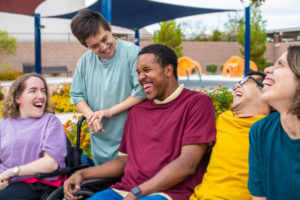
Children with cerebral palsy may feel alone or different from their peers. Thankfully, just like their parents, children with cerebral palsy can seek community and support.
Community cerebral palsy support options like playgroups, camps, and sports help bring children with disabilities together to create a sense of camaraderie and friendship.
-
Playgroups
Playgroups are a great way for children with physical and cognitive disabilities to learn valuable social skills. Playgroups can be therapeutic for children since they allow them to meet others with similar disabilities. These interactions can help children gain independence and feel more confident in social settings like school and daycare.
Playgroups meet throughout the year and are available in most major U.S. cities. Some local school communities may also have playgroups and meet-ups for children with disabilities.
-
Summer Camps
Summer camps for children with cerebral palsy can also help build confidence and independence. Children with different abilities can participate in swimming, hiking, fishing, crafts, sports, campfires, educational activities, and more.
Children with cerebral palsy can form meaningful friendships and memories by joining in activities that take the focus off of their disability.
-
Special Olympics
 The Special Olympics Young Athletes program was founded to help children with intellectual disabilities participate in adaptive sports. These sports and activities aim to help athletes with special needs build confidence and strength while exposing them to the importance of teamwork.
The Special Olympics Young Athletes program was founded to help children with intellectual disabilities participate in adaptive sports. These sports and activities aim to help athletes with special needs build confidence and strength while exposing them to the importance of teamwork.Your child may be able to participate in a range of Special Olympics sports on a local, regional, and national level.
Understanding cerebral palsy legal support
Throughout your family’s journey, it's important to recognize that in some instances, cerebral palsy may result from medical malpractice. Understanding your legal rights in such situations is crucial.
Doing so can be vital in ensuring your family receives the full support you deserve. This proactive step could significantly impact your child's quality of life and future well-being.
The financial compensation from a lawsuit can provide lifelong support for your child, covering medical expenses, therapy, and other necessary care.
Get a free case review right now, or call our patient advocates at (855) 220-1101 to see if you may be eligible for compensation.
How to find cerebral palsy support groups near me
You can find cerebral palsy support groups by searching the Internet, asking your child's doctor or special education teacher, reaching out to national organizations, and looking for groups on social media.
There are a variety of cerebral palsy support groups and organizations that can help you and your family members navigate life after a diagnosis. The best way to determine which cerebral palsy organization to join is to find one that fits your family’s specific needs.
You may opt for online cerebral palsy support groups because of the convenience it provides. On the other hand, you may prefer local meetings that offer support in your immediate area.
All cerebral palsy organizations offer a network of families who understand the challenges of raising a child with a disability. Whether you’re feeling overwhelmed, confused, or concerned, having a group to turn to during these times can make all the difference.
If you need help finding support options for your family, download your FREE copy of our Cerebral Palsy Guide.

